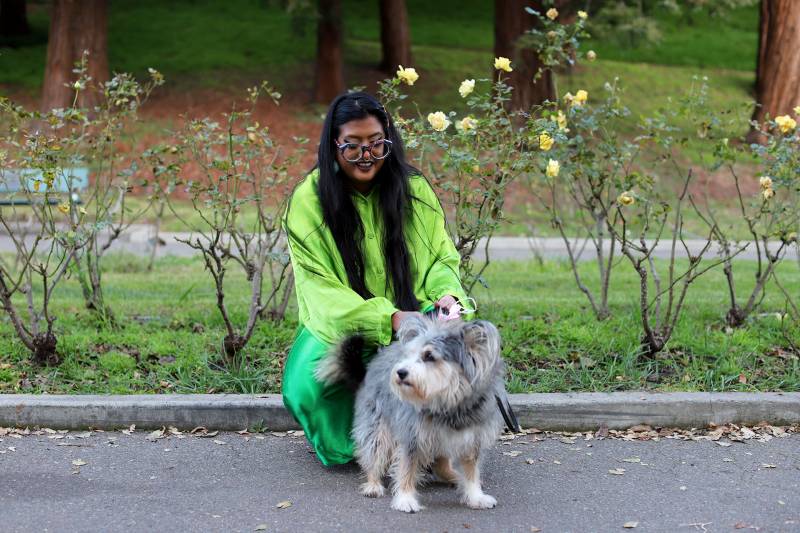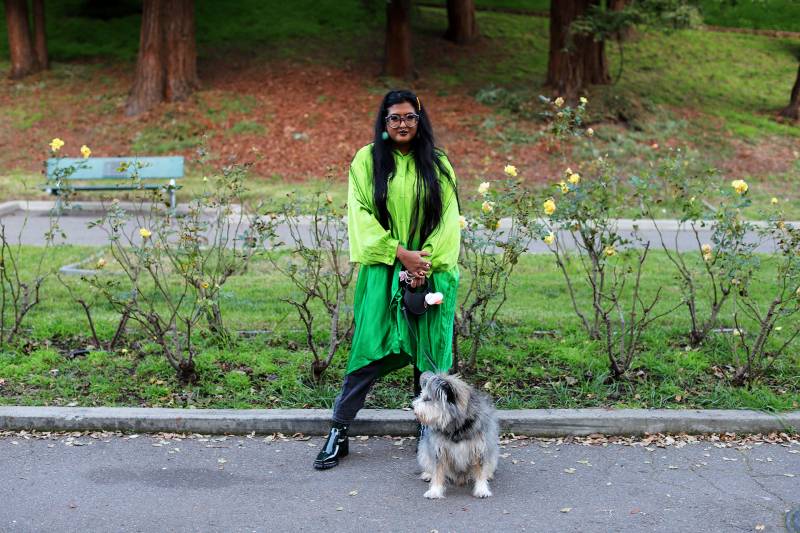An instrumental album about grief might make you imagine listening to calming tones in the dark. But Sharmi Basu’s new release as Beast Nest, Sicko (Ratskin Records), splashes the canvas—no, actually, the wall—with all the strange, contradictory emotional hues that accompany healing.
Basu composed Sicko in the years since losing close friends and collaborators in the 2016 Ghost Ship fire, which killed 36 Oakland partygoers. Billed as a “freak 4 freak, crazy 4 crazy wet blankie,” the album’s six electronic tracks embrace the messiness of grief.
As danceable beats guide the listener from abstract to accessible terrain, Sicko takes us on an emotional ride that opens with the ambient, droning tones of a meditation. Quickly, sci-fi blips and bloops interrupt the connection to what sounds like a dispatch from the spiritual realm. Electronic noise blacks out pretty melodies like a swipe of spray paint. But moments of joy and hope bubble up as whimsical, fuzzy sounds, conjuring the textures of Koosh balls and cotton candy.
The compositions flow like the ups and downs that Basu went through in the months and years that followed the tragedy. “There was so much cuckoo energy going on, like any time you entered a space the grief was so thick you could touch it,” says Basu, who has been intimately involved in the Bay Area’s music scene for years as a performer, educator and executive director of Ratskin Records. Their work (notably their “Decolonizing Sound” workshop) has appeared in major museums and universities, but they’ve stayed firmly rooted in the D.I.Y. underground scene.



